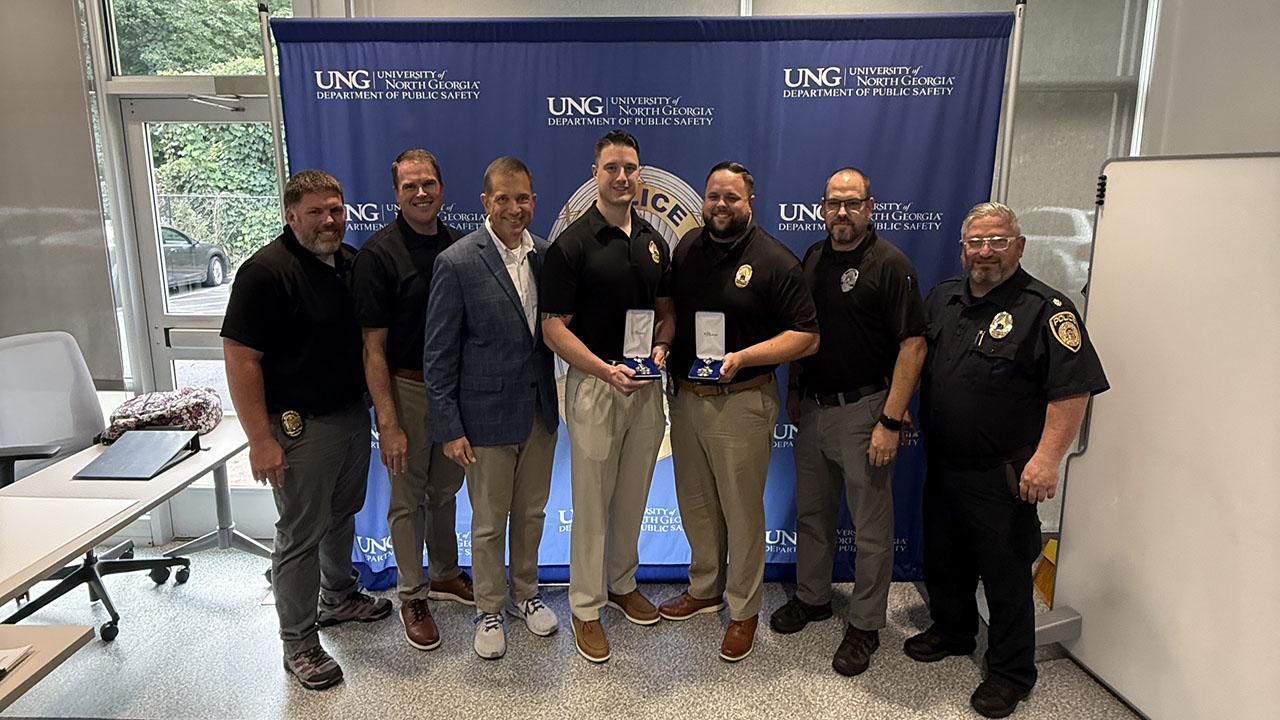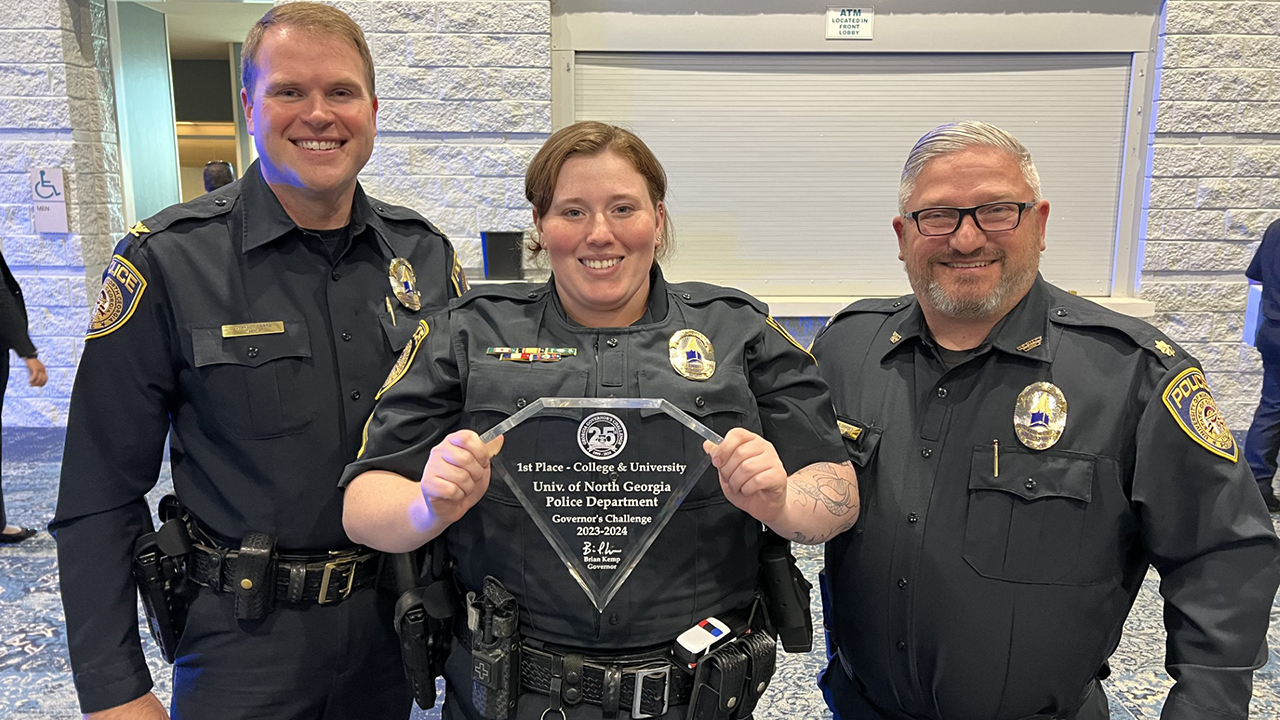Public Safety officers get mental health training

The University of North Georgia (UNG) Department of Public Safety has completed the One Mind Campaign pledge to provide mental health training for its officers.
As part of the pledge, started by the International Association of Chiefs of Police (IACP), departments commit to have 100% of their officers complete an 8-hour Mental Health First Aid course and 20% receive a 40-hour crisis intervention team (CIT) training. UNG exceeded the second standard substantially, with 35 of its 40 officers taking the CIT course with plans to have the remaining officers finish that training this month.
"Our goal is to connect people with mental health resources without having to make an enforcement action. We want our officers to be able to understand what they're responding to," Greg Williams, UNG chief of police and director of public safety, said. "It emphasizes our commitment to being continual learners."
Professional services Sgt. Trent McGuffey led the effort to train all UNG officers as part of the pledge. Departments usually take between one and three years to hit the targets set by IACP, but UNG moved even more quickly than that after beginning this initiative in May.
Our goal is to connect people with mental health resources without having to make an enforcement action. We want our officers to be able to understand what they're responding to.
Greg Williams
UNG chief of police and director of public safety
The trainings provide role-play scenarios so officers have practice with the types of situations they may encounter while on a call.
"It's important to our officers and our community," McGuffey said. "Our main goal is student success, and mental health training in law enforcement is a vital portion of that."
IACP instituted the pledge as a proactive method of officer preparation, said Dwight E. Henninger, president of IACP and chief of the Vail, Colorado, Police Department.
"As law enforcement leaders, we know that successful interactions between police officers and persons affected by mental illness improves public trust, ensures officer safety, and saves lives," Henninger wrote in a letter congratulating UNG Public Safety for taking the pledge. "The significance of your efforts cannot be overstated."
As part of the pledge, UNG signed a memorandum of understanding with the nonprofit organization Avita Community Partners to provide further mental health resources to the UNG community. This will supplement services already in place through Student Counseling and Nigel Cares, a student mental health initiative funded by the University System of Georgia. Avita serves a 13-county area in the northeast Georgia region.



